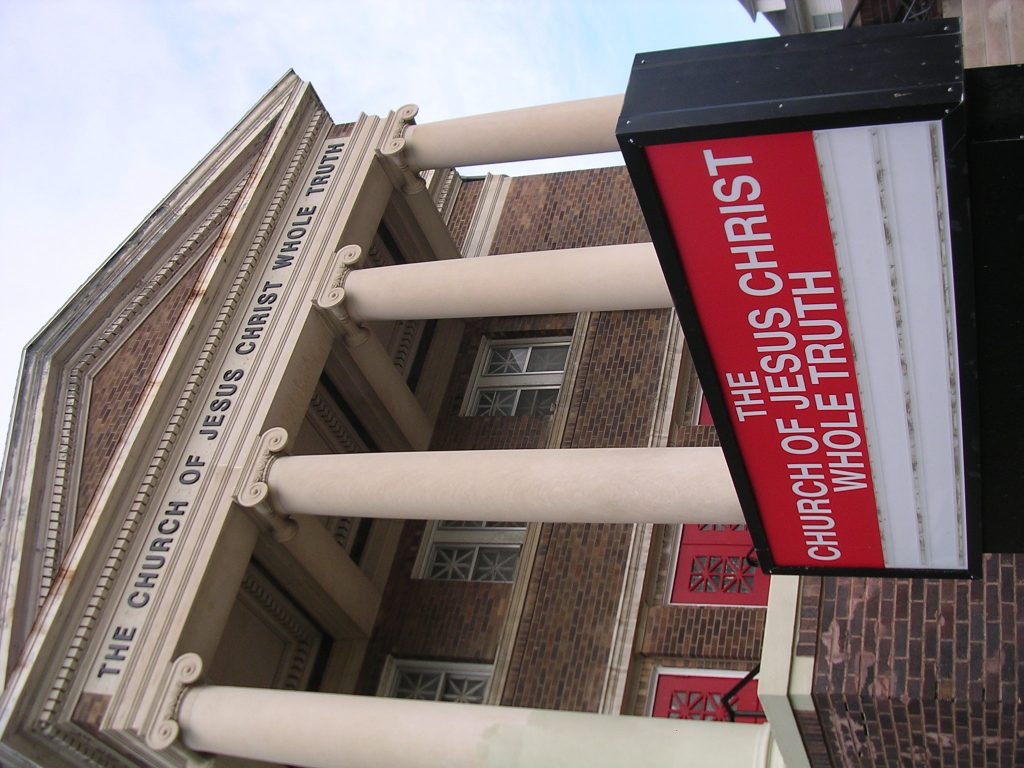 I’m now in Tucson, Arizona, finishing up the manuscript of Elusive Community for publication. In light of the many concerns surrounding the intrusion of the CoronaV, it is appropriate to reflect on how this disease has so far affected what is called “church” in light of some prophetic remarks I made in 1981.
I’m now in Tucson, Arizona, finishing up the manuscript of Elusive Community for publication. In light of the many concerns surrounding the intrusion of the CoronaV, it is appropriate to reflect on how this disease has so far affected what is called “church” in light of some prophetic remarks I made in 1981.
What are three key pillars that church leaders connect with practicing church in America? Building to meet in; pastor to give sermon; a way to collect tithes. All three of these have been deeply challenged by the in-your-face enormity of the CoronaV problem. The buildings cannot be used for services. The pastor’s sermon is now found on-line. Tithing has to be done electronically or by mail. If this goes on long enough, will church leaders be sweating about how their salaries will be met, and how building costs will be maintained?
Do you think people will realize that the essential components of “church” that have been practiced for hundreds of years need to be revisited and evaluated? Will they have a revelation that the body of Christ is about relationships – the 58 one anothers in the New Testament?
In 1981 I closed my article, “Building Up the Body: One Man or One Another?” with these words:
Some might feel that churches are not “ready” for the truths that have been discussed in this article. But why should truth be postponed? Were churches “ready” to practice the responsibilities of priesthood a hundred years ago? Fifty? Twenty? If years of tradition are wrong, just when will we be “ready” to edify one another as we should? If something important is missing in our churches, then the time has come for us to implement what Christ has revealed. The implications of a functioning priesthood probably seem “radical” only because we are used to patterns of tradition which have no foundation in Scripture.
We must ask ourselves if our churches are being prepared for future suffering. Our current “freedoms” with reference to assembling together may be disrupted some day by governmental upheaval. Are the saints being prepared now to care and sacrifice for one another? What if all evangelical pastors were arrested? Would the churches be in a position to continue functioning? The possibility of an underground church in the future (which is a reality in many places) should cause us to reflect upon our preparedness for such a situation. Learning to care and minister to one another now is an essential.
The church traditions built around one “office” and the personality that occupies the pulpit is a monumental aberration. This model portrays the idea that the body of Christ depends on one part. Unless and until we cast out this demon-like paradigm once and for all, we will just continue to suppress the full expression of Christ which comes only through the many parts.
It has been 40 years since 1981. Now it is 2020. Churches have not changed, just different Band-Aids cover over the problems. There is a way to reality and authenticity in Christ: simplicity. Eugene Peterson in The Pastor: A Memoir (HarperOne, 2011) acknowledges that “the first three centuries of Christian churches were cave churches – unobtrusive house churches and catacombs” (p. 170).
It seems that these facts from history are usually glossed over as if they stand as an irrelevant footnote for us. I would like to suggest that a pattern of Christ-centered simplicity unfolds in the New Testament. Jesus desires for himself to be expressed through his body in this age (Eph. 3:10). The ekklesias of the first century were relational face-to-face communities. Eugene notes that “all the great realities that we can’t touch or see take form on ground that we can touch and see” (p. 12). I agree. Which means that, to a watching world, the invisible heavenly realities on earth can only be seen in the properly functioning body of Christ – where all parts express Christ, not just a select few paid staff.
A Marginal Minority
A most profound insight comes from Peterson in his persuasion that smallness, not largeness, will be most effective in forwarding Christ’s kingdom.
[I came to] a developing conviction that the most effective strategy for change, for revolution – at least on the large scale that the Kingdom of God involves – comes from a minority working from the margins . . . . That a minority people working from the margins has the best chance of being a community capable of penetrating the non-community, the mob, the depersonalized, function-defined crowd that is the sociological norm of America (p. 16).
It is my heart-felt conviction that this marginal minority will penetrate our alienated, wounded, impersonal culture best with people functioning outside of the institutional church. The traditional pastor-centered form is just not going to cut it – from a biblical or pragmatic perspective. Eugene asked his pastor friend, after he expressed frustration about being pulled away from vital relationships “because I have to run this damn church” – Why did he find the diner a more hospitable venue for being a pastor than the church?
What catastrophe must come for us to awaken to the fact that pastor-centered churches have never equipped people to relationally pursue the 58 one anothers in the New Testament? What are we going to do when “the pastor” and the Tithe are gone? Frederick Buechner noted that support groups like AA are “far closer to what Christ meant his Church to be,” and “they make you wonder if the best thing that could happen to many a church might not be to have its building burn down and to lose all its money. Then all that the people would have left is Christ and each other.”
Again, as I prophesied in 1981: “Our current ‘freedoms’ with reference to assembling together may be disrupted some day by governmental upheaval. . . . the possibility of an underground church in the future (which is a reality in many places) should cause us to reflect upon our preparedness for such a situation. Learning to care and serve one another now is an essential.” – JZ, April 2, 2020

 Author, speaker, editor of Searching Together, itinerant encourager of relational communities.
Author, speaker, editor of Searching Together, itinerant encourager of relational communities.
Your perspective is really radical. It should not be but sadly it is. This non-relational abysmal practice of the one anothers is a major problem. It really is not rocket science to know folks grow more to be like Christ in accountability not isolation. YouTube may be a solution for believers that are completely unable to assemble but this feeds the consumer driven model that is at best categorically not the Bride but a program(s) for disaster. Our families are being decimated inside the church as well as outside. I speak as a fella with five marriages between my wife and I. Things must change or they will continue to implode. Thank you for your voice in the wilderness of the americanized disfunction we all call our church. Keep ponding the truth Sir. You have a fan from a far.
Brian Edwards